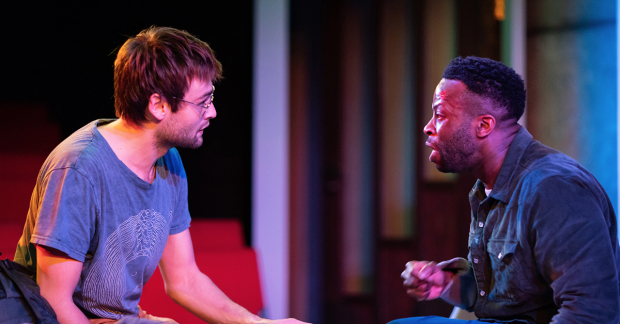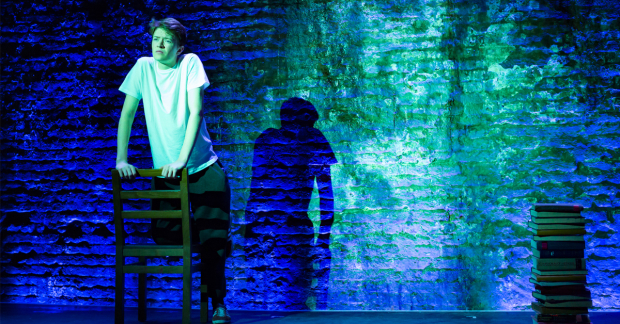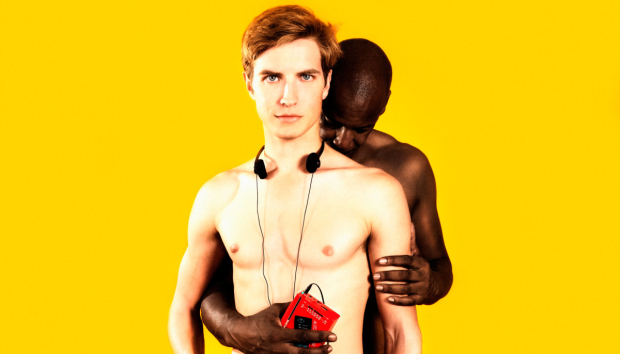Review: A Guide for the Homesick (Trafalgar Studios)

© Helen Maybanks
The two specimens we see before us in Ken Urban's double-hander A Guide for the Homesick have got some serious baggage. Both literally, because the pair are world-travellers (Americans, who cross paths a long way from home in an Amsterdam hotel), but also metaphorically because each carries a huge amount of guilt.
At first, it's hard to see much else they do share. Jeremy (Douglas Booth) is a Harvard graduate slowly returning home after a year working at a medical clinic in Uganda. Teddy (Clifford Samuel) is a boozing, Harlem-raised finance worker who finds himself abroad on a bodged stag do. Is this to be some sort of cute, odd-couple story?
No. In both of their stories, something or other has clearly gone wrong and it is the fate of each man to fathom the other. Jeremy is no backpacking drifter after all, but a young man haunted by the sorry tale of Nicholas: a man who lives in danger and secrecy as a gay person in Uganda. As for Teddy, he has a deeply complex history with Eddie: his friend, the stag who's stormed out of his own stag do.
Teddy's hotel room provides the anonymous, yet also intimate, setting for what proves to be a deep examination of masculinity, homosexuality, and how people repress things.
Some mid-scene character-switching (excellently managed by director Jonathan O'Boyle) serves to oil up the already-slippery question of what it is that each man is hiding. We see, for instance, Teddy switch from African-American to African. He becomes Nicholas, the gay man in Uganda. Then back again.
It's a nifty device which could have been used to further develop one area which Urban says he's interested in: the alleged influence of Americans on the rise of anti-gay sentiment in Uganda. Only one or two lines allude to it – as well as to the influence of Britain, the country's former colonial power.
That the play pulls one or two political punches does not mean it lacks interest as a representation of the gay experience in different parts of the world. The show also occupies a worthwhile niche in the here-and-now. This is a story about men, and all the things men do – including the way they hunt for mates, and, in the characters' own words, how they "judge" one another. At a time when male sexuality is under such scrutiny, this is one thorough inquest.
Many of the findings are positive. The show is full of implicit male violence – but also, explicitly, male love. Sweeter than anything else is a story of forbidden desire expressed by Nicholas. His secret lover is another man in Kampala who's married to a woman. The two men are separate but the passion is just so real: Nicholas couldn't bear to live on this planet a second longer than this other guy.
If the show's title implies some kind of curative item, don't be fooled. Over just 80 minutes, it builds towards something quite feverish and draining. In a good way.

















